In 1970, almost 70,000 rhinos were living in the wild. Today, only 54 years later, there are only 27,000 of these majestic creatures. Scientists have been working tirelessly to protect rhinos, but their solutions have failed time and time again.
Now, they have a new plan: injecting rhino horns with radioactive material. Although it seems like a wild idea, this will actually protect the shrinking rhino population and, hopefully, save them from extinction.
All Five Species of Rhino Are Considered Endangered
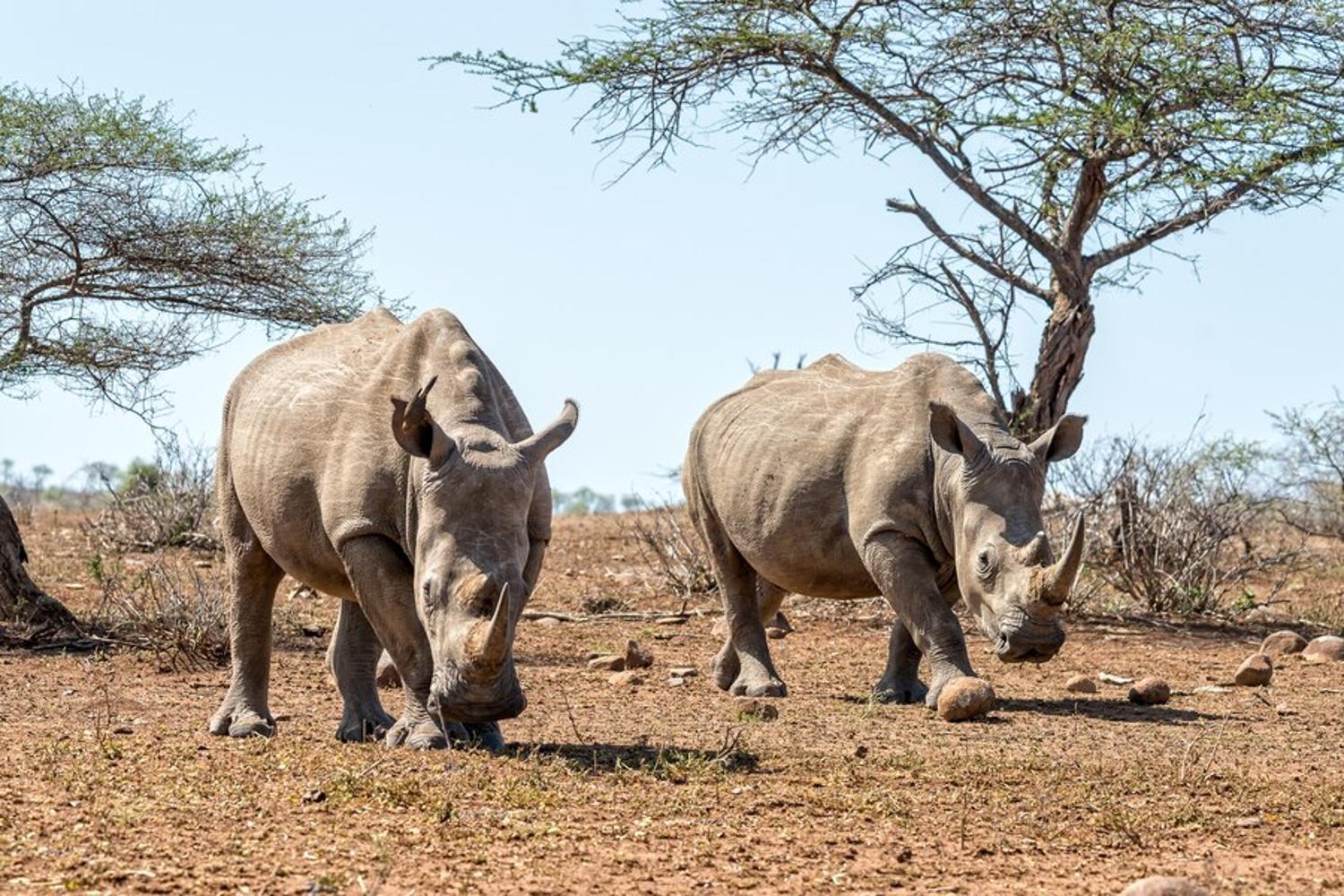
There are currently five species of rhinos, including white rhinos, black rhinos, greater one-horned rhinos, Javan rhinos, and Sumatran rhinos, all of which are considered endangered, some gravely so.
While several factors, such as grassland composition, agriculture degradation, and the destruction of natural habitats, certainly contribute to rhinos’ dwindling numbers, the main threat to rhinos is poachers.
Why Do People Hunt Rhinos?
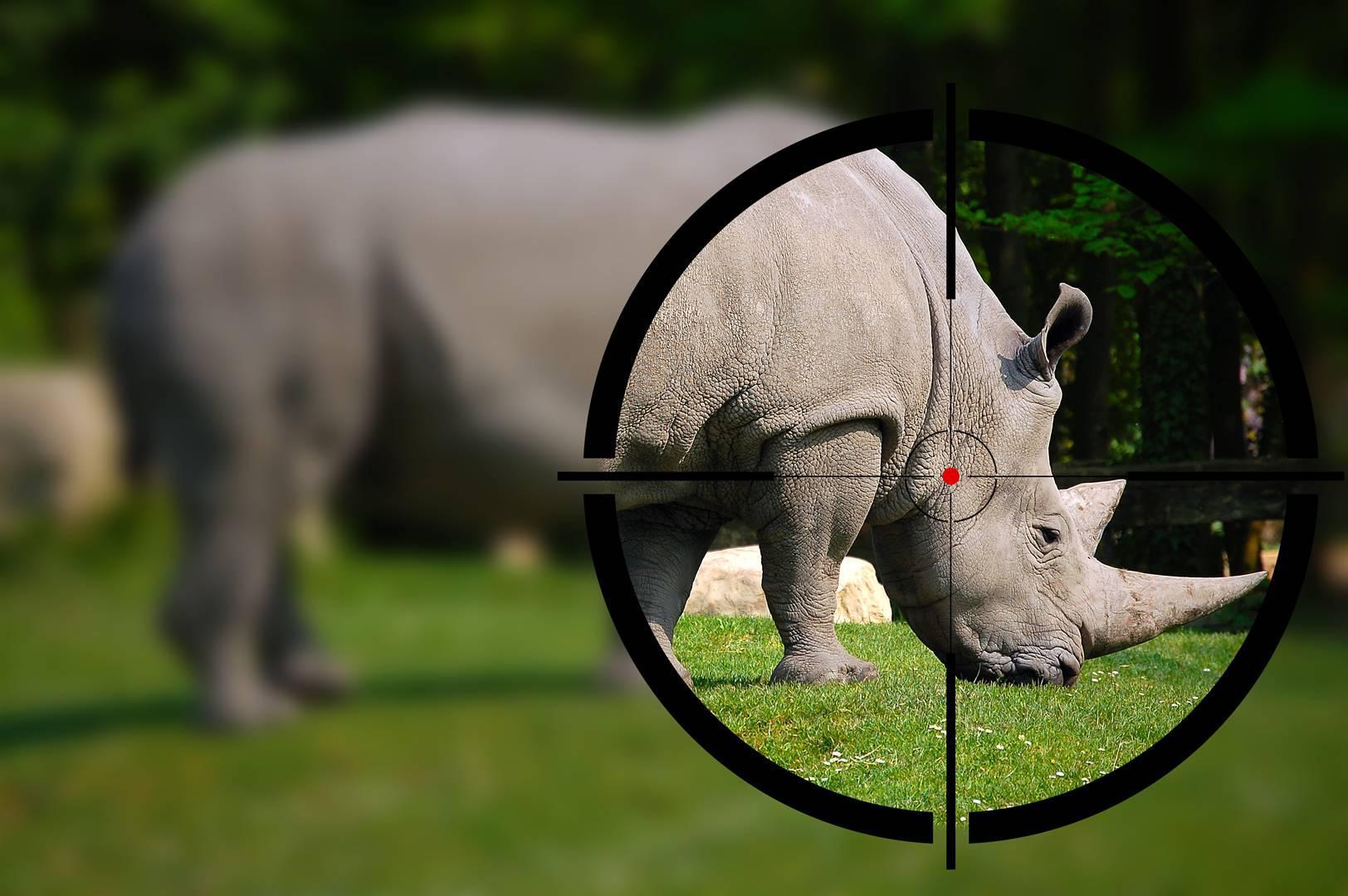
Though illegal, the hunting and killing of rhinos is more common than one might think. According to Save the Rhino International, around 450 rhinos are killed by poachers every year, which is almost 2% of the global population.
The reason why rhino poaching is so frequent, even though it is illegal, is that hunters can make a significant amount of money from selling the animals’ horns.
Rhino Horns Can Sell for Up to Half a Million
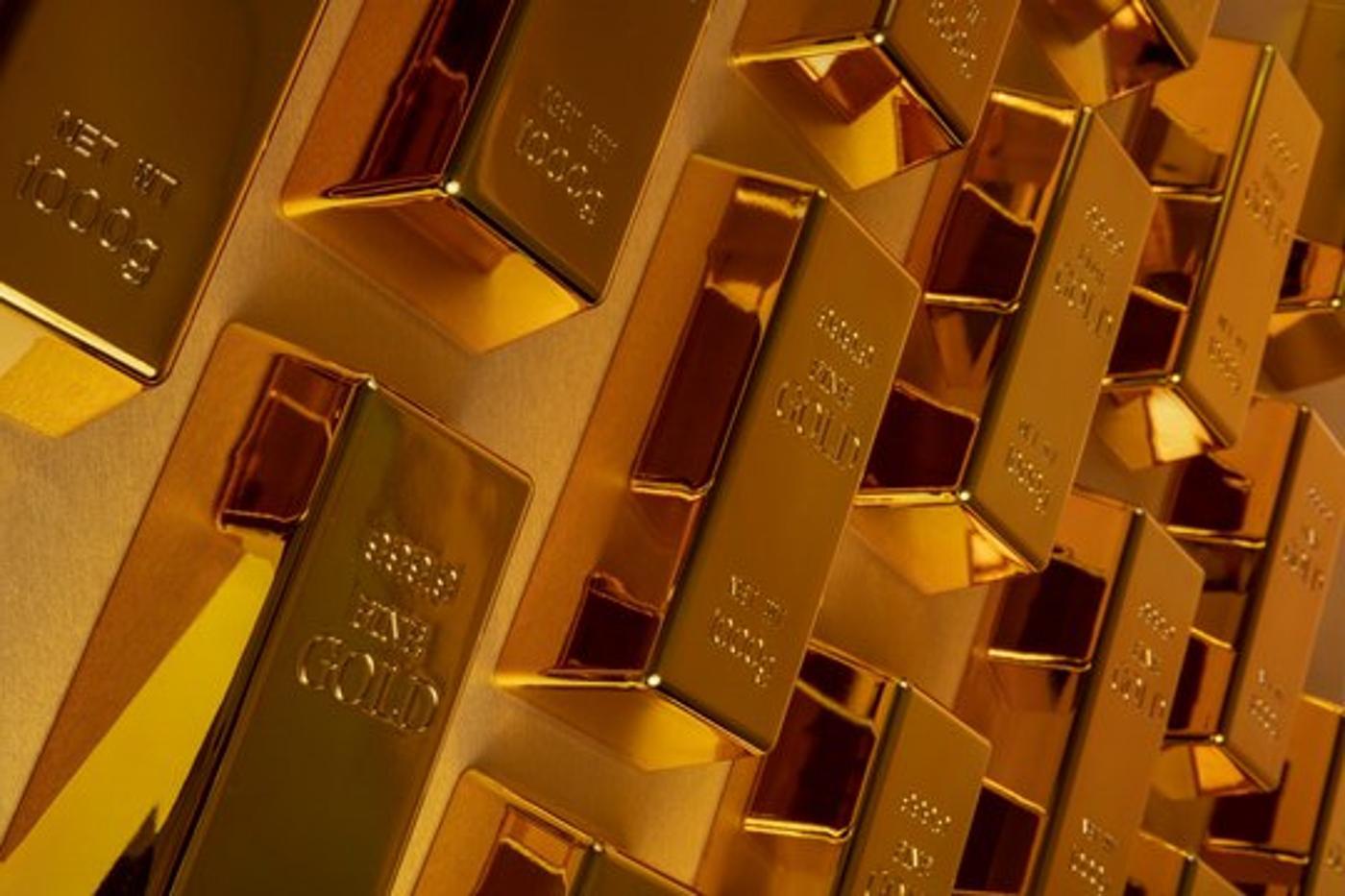
At $60,000 per pound, rhino horns are more valuable than gold. And because the average rhino horn can weigh between 3.3 and 8 pounds, one large rhino can offer a poacher a whopping $480,000.
Sometimes, depending on the buyer, they can get far more than $60,000 per pound. Because rhino poaching is becoming increasingly challenging, the price of rhino horns has also increased. In fact, one report noted that a pound of rhino horn could earn sellers as much as $882,000.
Owning Rhino Horns Is a Status Symbol in Asia
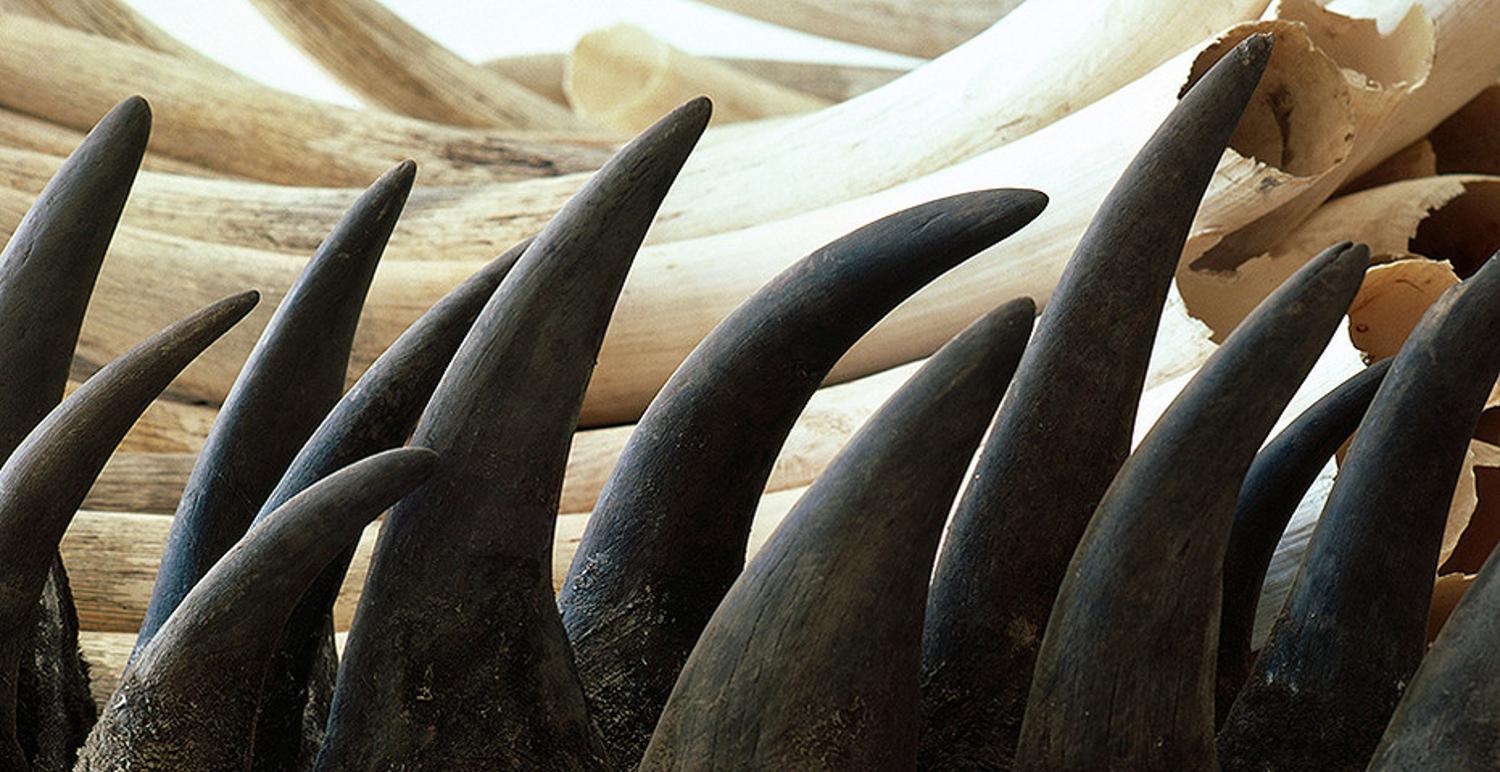
Now, you may wonder: Who spends millions of dollars on rhino horns? Unfortunately, many cultures in Asia, including China and Vietnam, use rhino horns for traditional medicines.
However, as rhino horns became more expensive, they also became a status symbol. Consumers illegally purchase the expensive horns to demonstrate their wealth and success to colleagues and friends.
Activists Have Tried Desperately to Stop Rhino Poachers
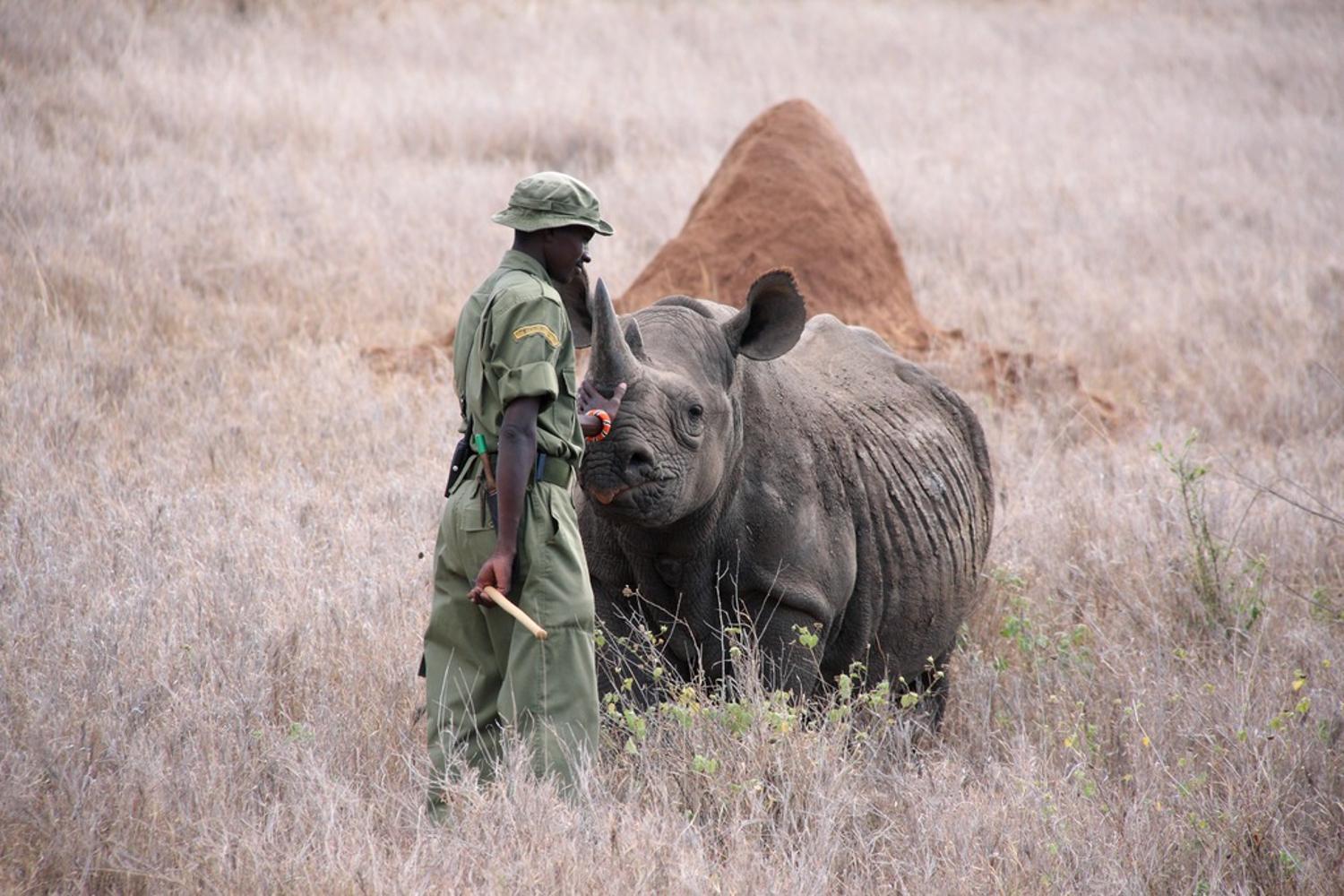
Because there are so few rhinos left on planet Earth, activists have been working desperately to find ways to protect the 27,000 individual rhinos that are left.
Some organizations have implemented programs where caretakers with firearms live among the rhinos to protect them from potential poachers. However, these programs are expensive and often inefficient as the guards cannot be with every rhino simultaneously.
Safely Removing Rhino Horns With a Chainsaw
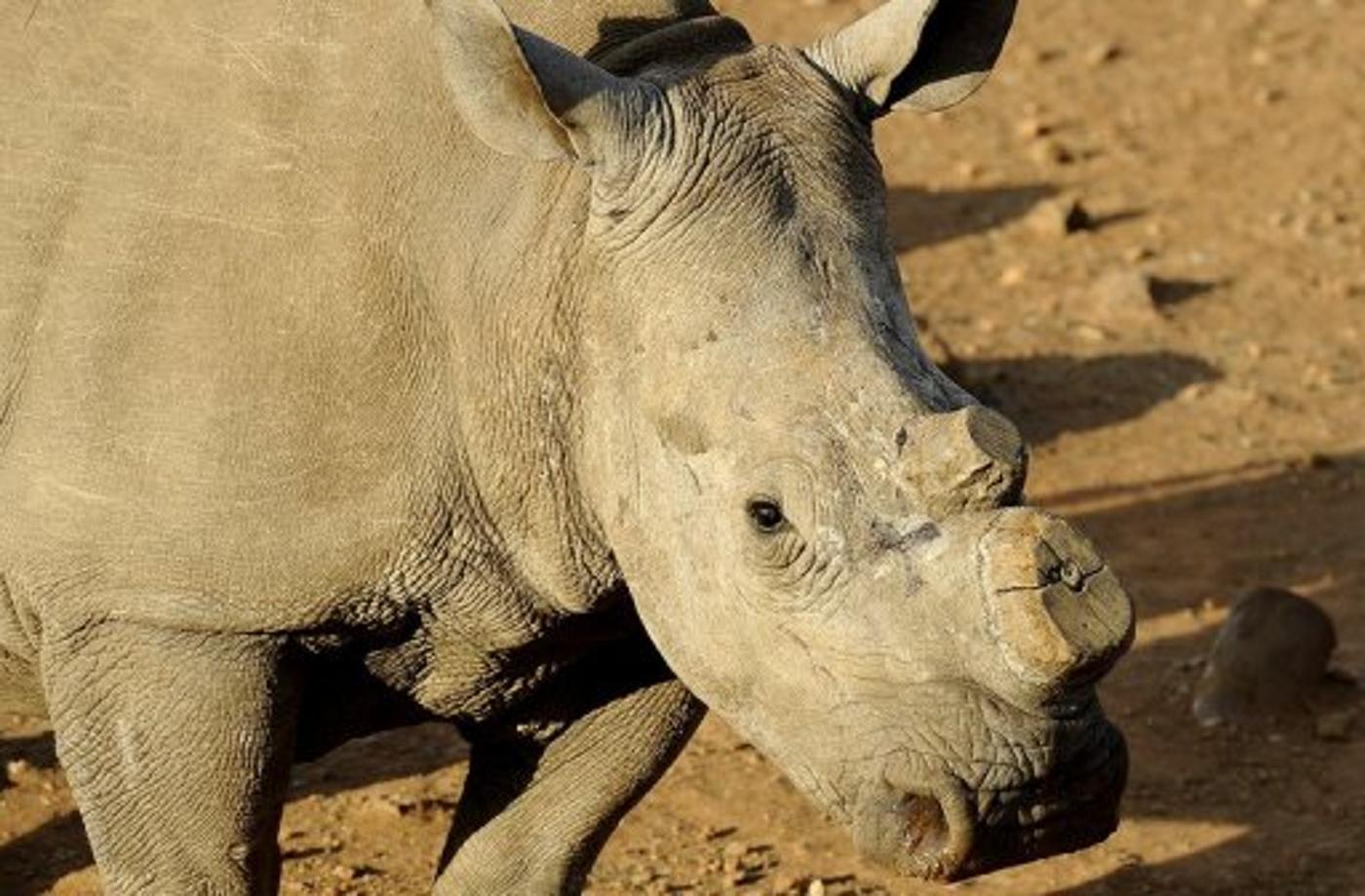
After placing guards around the rhinos didn’t solve the problem, activists wondered if they could protect them from being killed by safely removing their horns.
They actually use chainsaws to remove the horns but are careful not to cut so closely that they nick the nerves that connect the horns to the rhinos’ faces. As black rhino conservation specialist Vanessa Duthé explained, “We get a lot of criticism for cutting with a chainsaw. But it’s the best way, the fastest way [to dehorn].”
There Are Substantial Downsides to Removing Rhino Horns
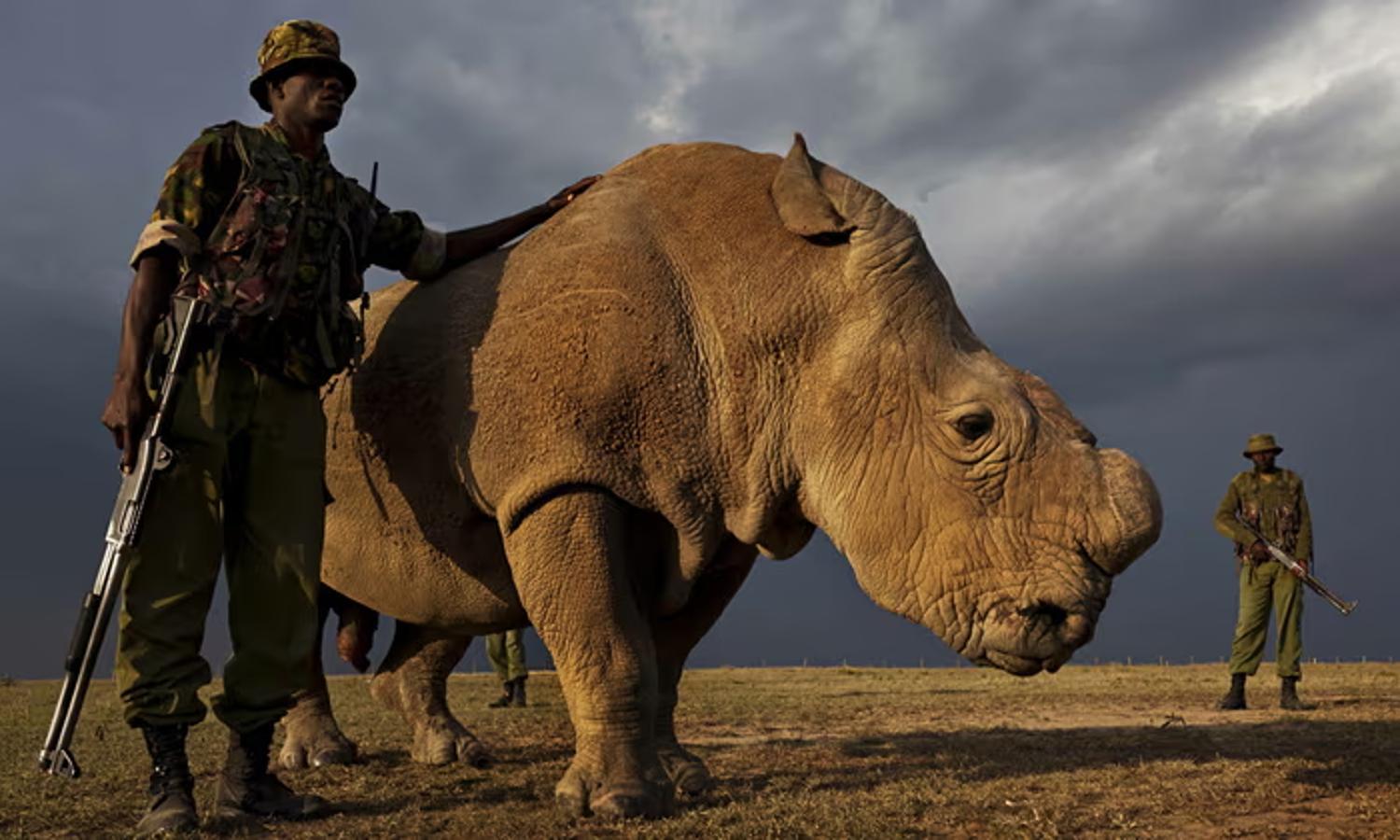
However, even though removing the horns with a chainsaw doesn’t physically hurt the rhino, studies have shown this practice is detrimental to the individual animal and the species as a whole.
A study published by Science.org showed that “[dehorned] male rhinos greatly reduced their range—some lost up to 80% of their territory” and that some females lost even more land. This reality affects not only their social interactions but also their reproduction and physical strength, which could certainly lead to a natural extinction even if the practice did protect them from poachers.
The New Solution: Adding Radioactive Material to Rhino Horns
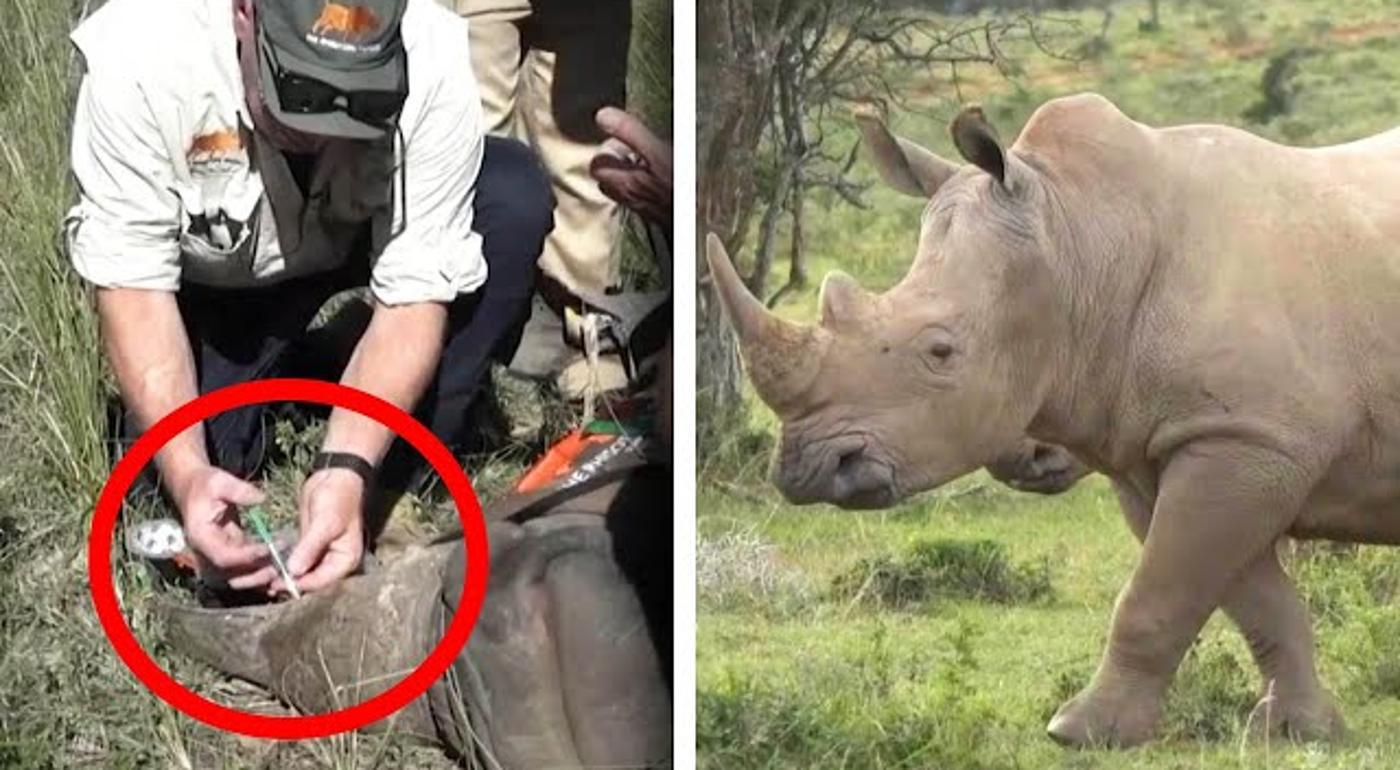
Now, scientists believe they may have finally found the answer they sought. Instead of removing the horns, they discovered a way to inject radioactive material that could save thousands of rhinos from losing their lives.
In addition to making the horns unsafe for human consumption, the injection can also “set off detectors that are installed globally,” essentially alerting rhino conservation organizations as to where the horns are if they are removed from the animal.
The Radioactive Chips Are Completely Safe
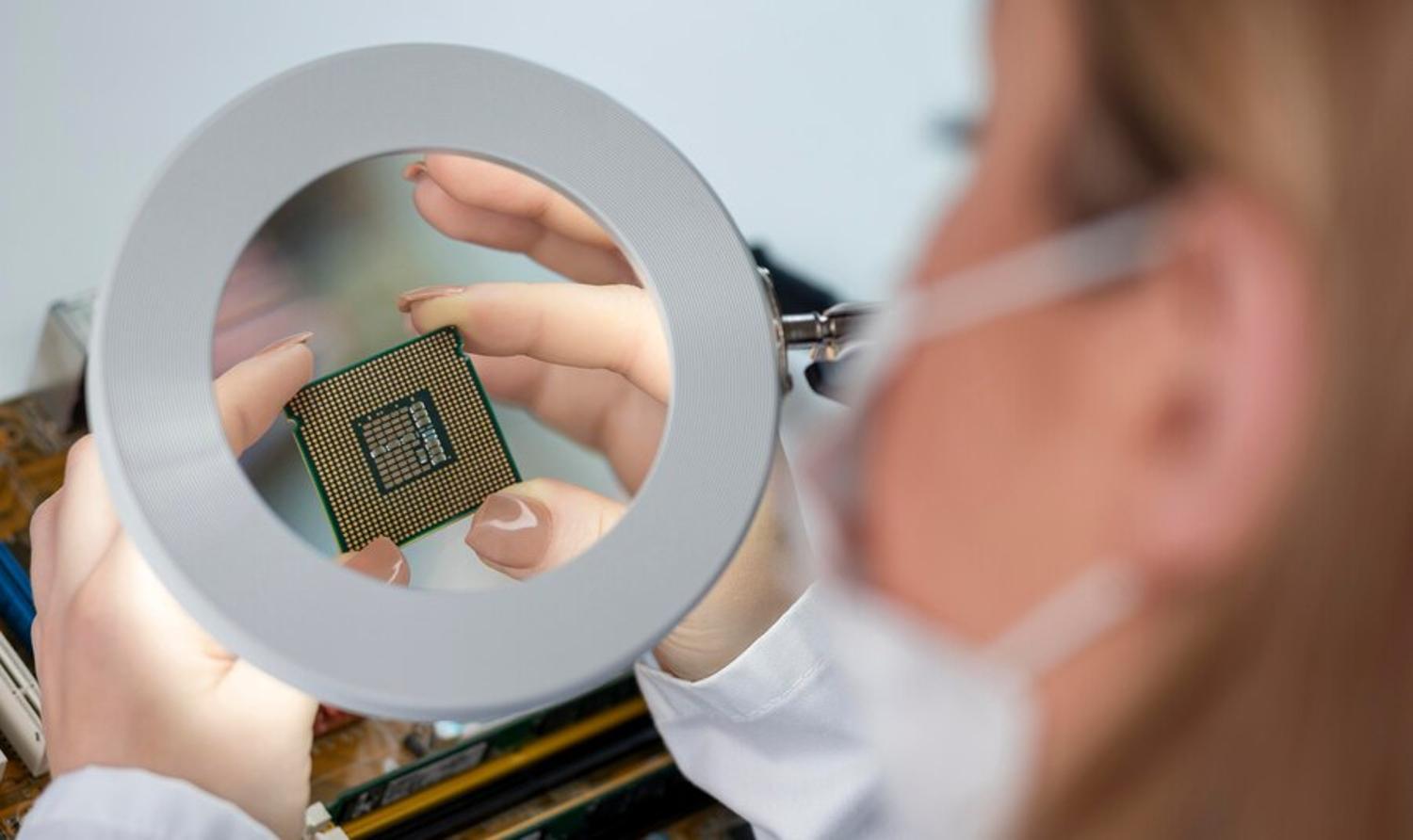
While radioactive material sounds dangerous, it’s actually completely safe for rhinos; the injection will not affect them physically or socially.
James Larkin, director of the University of the Witwatersrand’s radiation and health physics, explained that they implant “two tiny little radioactive chips in the horn.” When it wakes up, the rhino won’t notice anything different.
The Radioactive Material Will Make the Horns Unusable for Humans
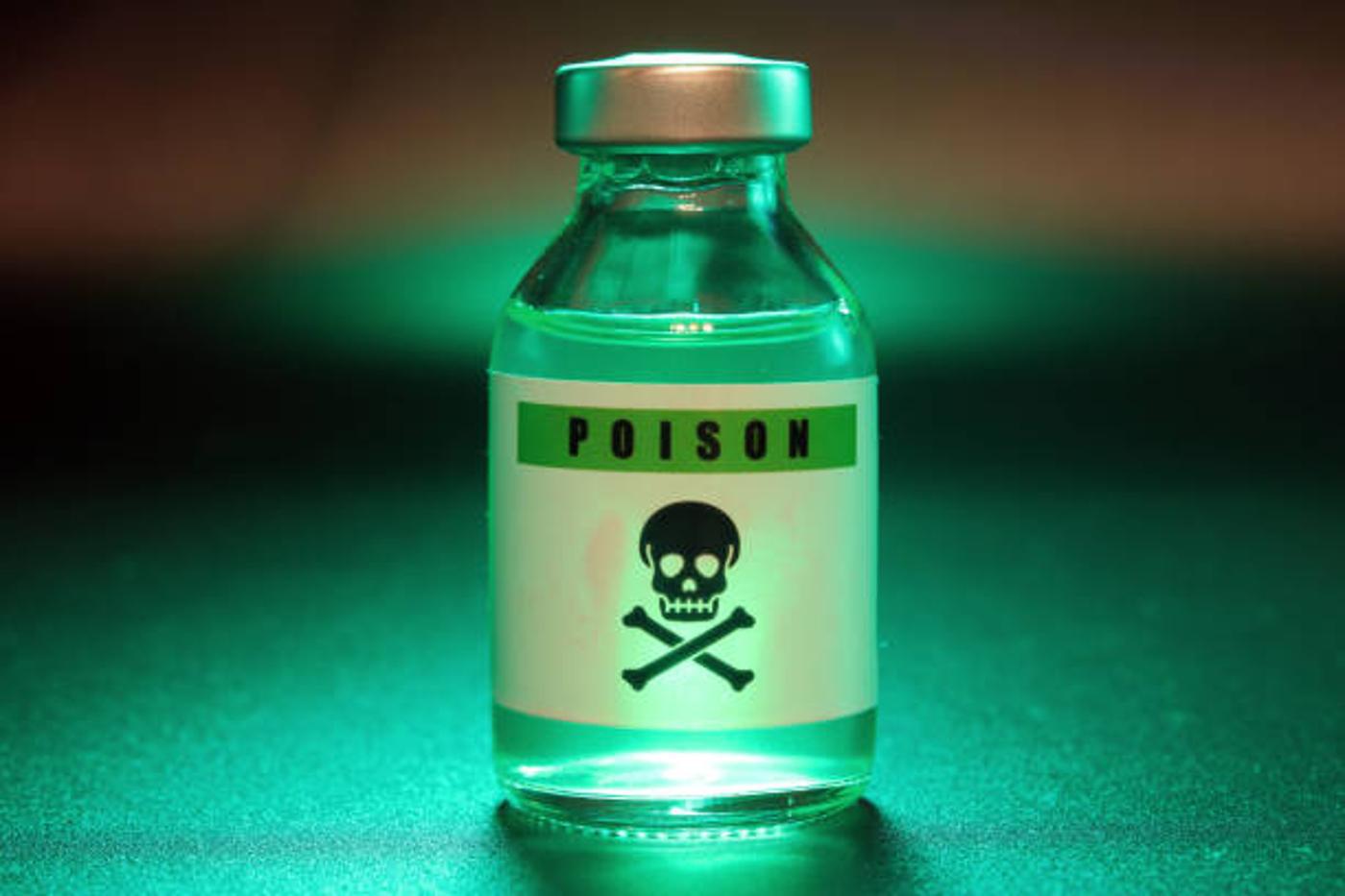
However, while the rhinos won’t even notice the radioactive chips in their horns, humans absolutely would.
As Nithaya Chetty from the University of the Witwatersrand explained, “render the horn useless… essentially poisonous for human consumption.” Alongside the fact that these horns now have a kind of internal tracking device, scientists hope they have solved rhino poaching once and for all.
Some Poachers Will Continue to Hunt Rhinos for Sport

Arrie Van Deventer, founder of the Limpopo Rhino Orphanage and pioneer of the project, is certainly hopeful that “this is the thing that will stop poaching.”
Of course, it’s unlikely that rhino conservationists will be able to stop poaching completely. However, with only 27,000 rhinos left on Earth, anything that can help deter and minimize the hunting of these beautiful creatures is worth trying.








































